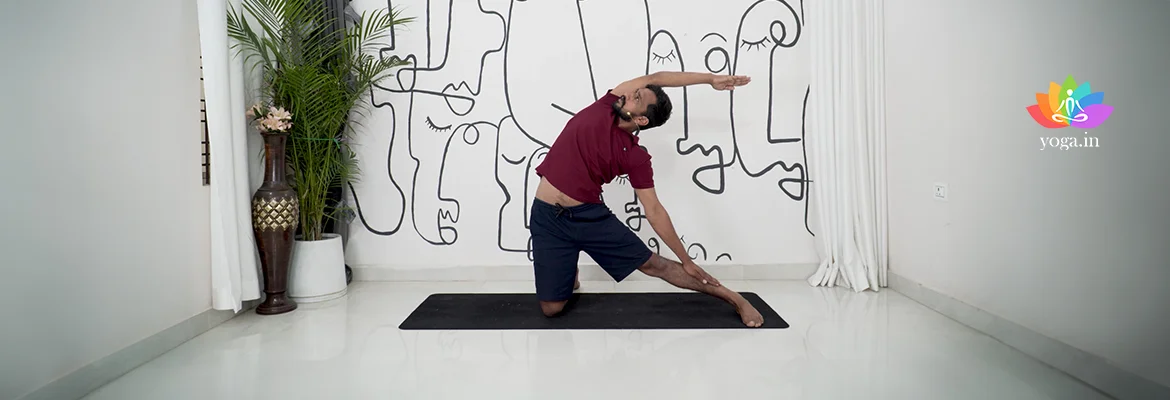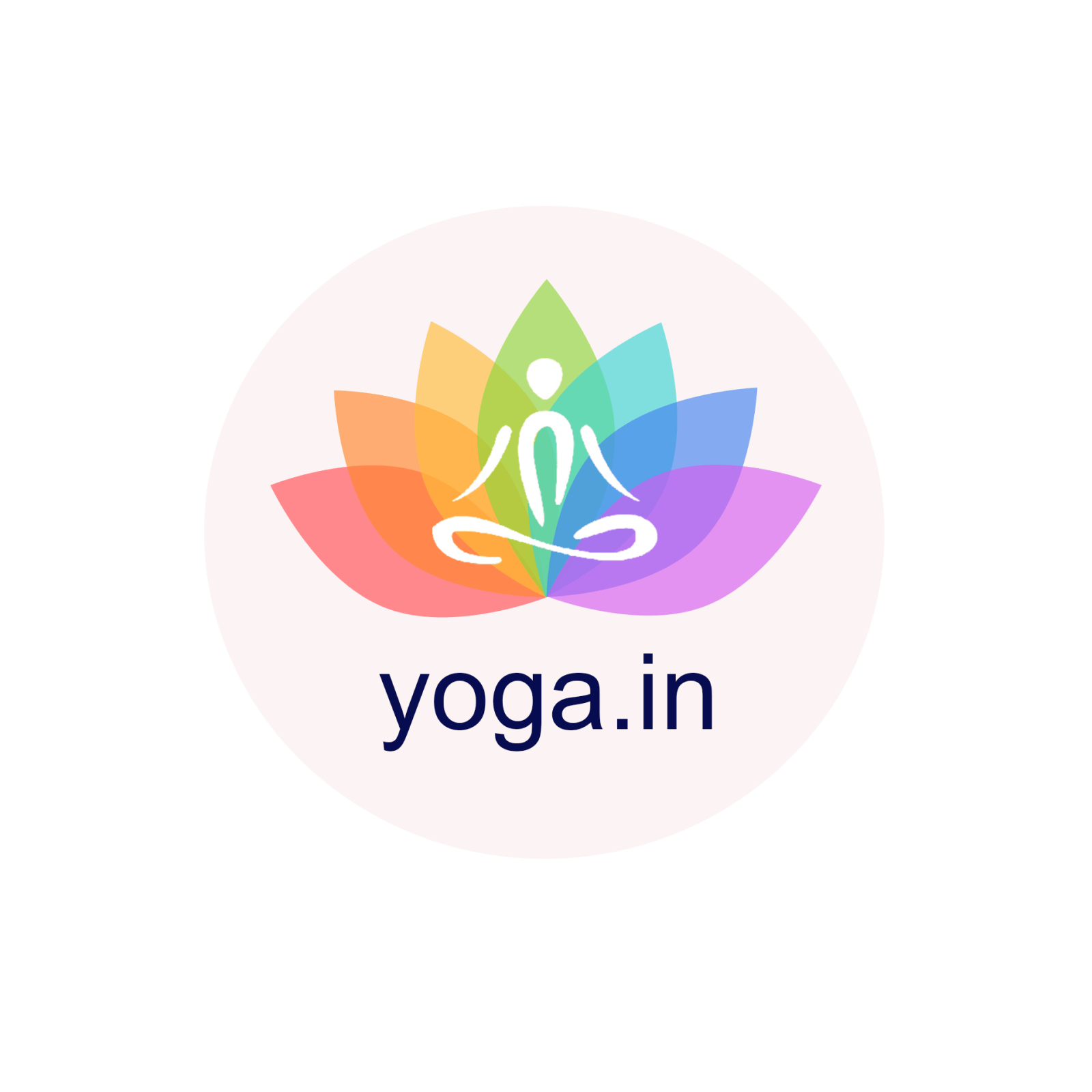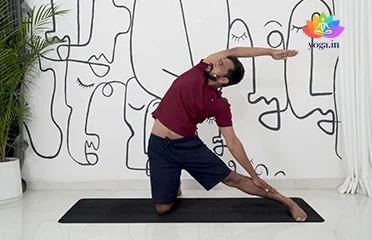Begin by kneeling down on the mat with your knees hip-width apart.
Introduction to the Asana
The Sanskrit name is derived from Parigha (परिघा) meaning gate and asana (आसन) meaning posture or seat.
Step to get in the pose
-
-
Stretch your right leg extended to the right side. Your right toes of the right leg should point straight in front and your right heel should be in line with your left knee with no strain on the stretched right leg.
-
Inhaling with deep breath, stretch your arms on your sides and reach the left arm up to your left ear. Keep your foot flexed and chest open.
-
Exhaling, move your trunk on the right side towards the stretched leg. Keep your right wrist and forearm on the right ankle and shin, respectively. Keep your right palm facing upside down.
-
Gradually lift your left palm over the head and stretch with your left foot firmly placed. Tilt your head slowly upwards.
-
Hold the gate pose for a few breaths. Breathe deeply.
-
Breathe normally and switch sides. Keep your gaze straight ahead or slightly upward to maintain balance and stretch.
-
Engage your core muscles to support your spine and balance. Avoid forcing your body into the stretch.
Common mistakes and pitfalls
-
Twisting the torso to bend forward instead of strictly to the side.
-
Leaning too down during the side bend.
Benefits
-
Increases the core, stretches the calves, hamstrings, spine.
-
Opens the side body, chest, and shoulders.
-
Stimulates the lymphatic system playing an integral part in the body’s immunity.
-
Stimulates the lungs and the abdominal organs, strengthening the digestive system.
-
Activates the Sacral chakra, Manipura Chakra (Solar Plexus Chakra), and Anahata Chakra (Heart Chakra).
-
Calms the nervous system.
-
Enhances your physical and mental balance.
-
Removes emotional blockages and enhances inner clarity, confidence, and creativity.
Contraindication
-
Avoid if suffering from acute lower back pain, chronic knee injury or inflammation in hips, shoulders, arms, or spine.
-
Avoid if suffering from spondylitis.
-
Avoid if suffering from hernia.
-
Avoid if you have severe digestive disorders or acute abdominal pain.
-
Avoid in case of heart issues or recently undergone surgeries.
-
Avoid during pregnancy.




